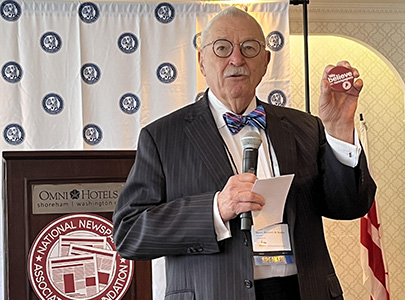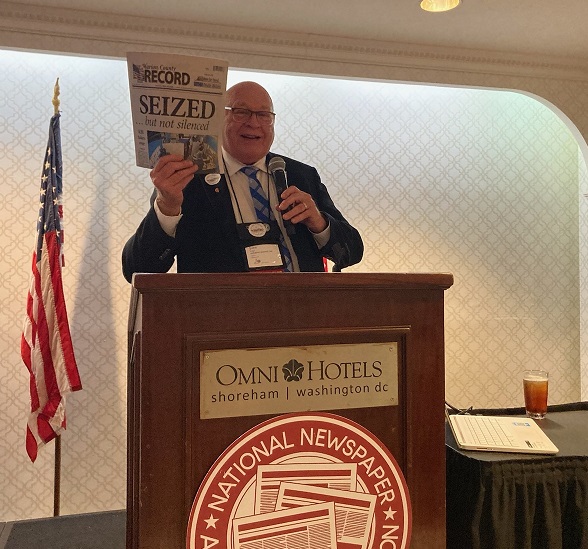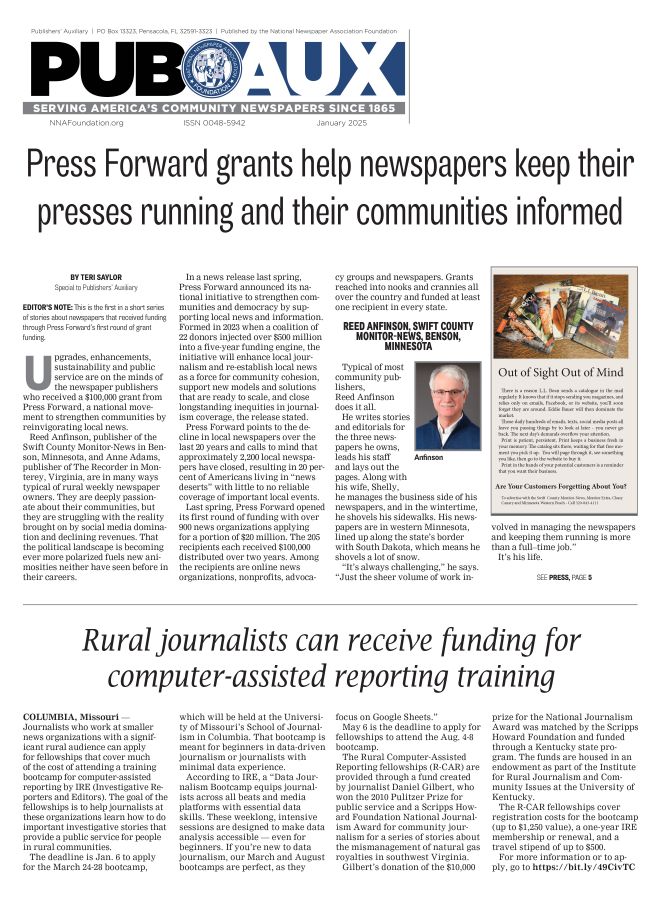Pastors, politics and power: The struggle for equality for Black Americans
First Five by the Freedom Forum Institute
Feb 25, 2021
DAVID CALLAWAY
Download Word doc here.
Democratic Sen. Raphael Warnock, senior pastor of Ebenezer Baptist Church in Atlanta, overcame Georgia’s long history of racial prejudice and a traditionally Republican electorate to become the state’s first Black U.S. senator.
Warnock’s historic election in January is rooted in a deep American tradition of Black people using their right to religious freedom as a basis to build political power. For many, the freedom to worship provided both refuge from a hostile society and the opportunity to organize their communities around exercising other First Amendment rights like assembly, petition and speech.
The Black church, by safeguarding religious expression within the Black culture, has been “a sacred space that empowers Black people to act to secure their political rights as citizens and human beings in America,” writes Hood Theological Seminary professor Sharon J. Grant, in “African Americans and Religious Freedom: New Perspectives for Congregations and Communities.”
Warnock’s story embodies the centuries-long struggle for enfranchisement by Black Americans. The religious community he leads is a source of support and inspiration for the political change he hopes to enact in Washington.
His religious predecessors shared some of the same hopes — and many were met with fierce opposition. The resistance continues today under different guises.
Consider the often-forgotten period of Georgia history after the Civil War, when 33 African Americans were elected to the general assembly. Known as the “Original 33,” the men were among the first Black state legislators in the country. Twenty-four were ministers.
With little political capital, some Original 33 men voted against legislation that would have secured their right as African Americans to political office in the state constitution. They thought specialized language that explicitly gave Blacks the right to hold elected office was unnecessary because state and federal law already recognized African Americans as equal citizens.
Instead, the Black legislators sought to extend the work of the Black church by empowering communities outside their own. They championed education for all Georgia children and fought for the property rights of women. Yet their acts generated little goodwill.
In 1868, less than five months after they had been seated, the assembly’s white majority illegally expelled the Original 33. They were reinstated in early 1870 under the authority of the state Supreme Court. This led to Georgia’s ratification of the 15th Amendment, which prohibited the government from denying Black Americans the right to vote.
But by December of that year, a mobilized white Georgia electorate, intent on clawing back the new freedoms, voted out the Black legislators. In the process, one quarter of the Original 33 were beaten, jailed or killed.
Soon after this period, an itinerant preacher named Rev. Adam Daniel Williams traveled through rural Georgia. Settling in Atlanta, he became the pastor of Ebenezer Baptist Church, a congregation with only 17 members.
Williams grew the church into a vibrant community, pioneering a Black version of the social gospel that emphasized civil rights. He cultivated a rhetorical and religious authority his grandson, Martin Luther King Jr., would bring to the nascent civil rights movement in the 1950s.
King, a successor pastor in the church, recognized the near impossibility of being elected as a Black American. He turned down requests to run for political office but was unafraid to use his religious pulpit to advocate for the civil rights of all Americans.
In his final public speech in 1968, King implored, “All we say to America is, ‘Be true to what you said on paper.’ But somewhere I read of the freedom of assembly. Somewhere I read of the freedom of speech. Somewhere I read of the freedom of press. Somewhere I read that the greatness of America is the right to protest for right.” One month shy of the 100th anniversary of the Original 33’s election, he was assassinated in Memphis, Tenn.
The lesson repeated: Black Americans exercising their right to religious freedom could be abided but using the fruits of that freedom to pursue equality could not.
While deep rifts and violent rhetoric are still too common, a social climate shifting toward racial inclusion and a robust Georgia voting rights campaign created a path to victory for Warnock that had been denied King.
But disenfranchisement comes in many forms. In America, the granting of rights and power to people of color has almost always been met with passionate, and too often successful, counter-movements to rescind those freedoms. Even this month, Georgia legislators introduced a bill that would eliminate Sunday morning voting, a traditional time for Black Americans to go to the polls.
Understanding the long struggle for enfranchisement is the first step in ensuring all Americans, regardless of race or religious creed, are fully protected under the Constitution, today and in the future.
David Callaway is the project manager of the Georgia Rights, Responsibility, Respect Project, an education initiative of the Religious Freedom Center. His email address is dcallaway@freedomforum.org.










